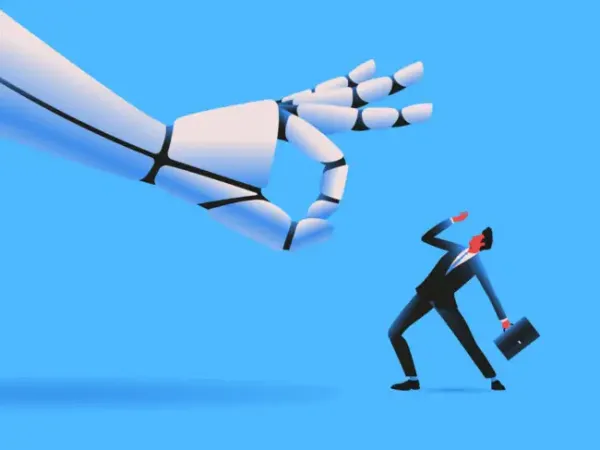Artificial intelligence has been making headlines for its rapid evolution and impressive capabilities. From automating customer service chats to coding complex software, AI tools have seeped into virtually every corner of modern business. But behind the glossy PR campaigns and innovation summits lies a less glamorous reality—one that experts warn is already reshaping the job market in ways we’re not even measuring accurately.
According to a recent Inc. report, many companies may be replacing workers with AI—but are simply choosing not to say so. Instead, euphemisms like “technological updates” or “market conditions” are being used to explain workforce reductions. Executive outplacement firm Challenger, Gray & Christmas found that only 75 job cuts in the U.S. during the first half of 2025 were explicitly linked to AI. That number, when contrasted with over 744,000 total layoffs, seems not only low but potentially misleading.
This is particularly concerning when considering that companies like Meta, Google, and Microsoft have openly praised AI's efficiency. Microsoft and Google CEOs recently admitted that AI now writes up to 30% of their operational code. Meta, meanwhile, has restructured entire departments, citing automation and AI as reasons for role reductions—especially among mid-level coders.
Yet, AI is rarely mentioned as the primary reason for layoffs in corporate filings. The likely reason? According to Challenger, it’s all about optics. “Some firms don’t want press on it,” he said.
To Li, reducing humans to a list of mechanical tasks risks stripping away the very dignity that defines our value. “We are so much more than those narrow tasks,” she said. Her advocacy for “human-augmenting AI” reminds us that machines should assist us, not substitute us.
The challenge isn’t just to measure AI’s impact, but to name it honestly. Until companies begin to call these changes what they truly are, the world risks sleepwalking into a future where progress comes at the cost of transparency—and perhaps, humanity itself.
According to a recent Inc. report, many companies may be replacing workers with AI—but are simply choosing not to say so. Instead, euphemisms like “technological updates” or “market conditions” are being used to explain workforce reductions. Executive outplacement firm Challenger, Gray & Christmas found that only 75 job cuts in the U.S. during the first half of 2025 were explicitly linked to AI. That number, when contrasted with over 744,000 total layoffs, seems not only low but potentially misleading.
Is It AI or Just Economics?
The language companies use to explain their decisions may be shaping public perception far more than we realize. Andy Challenger, senior VP at the firm, told HRDive that AI-linked layoffs are likely being categorized under broader, more vague terms to avoid negative attention. “Some of the AI job cuts that are likely happening are falling into that category,” he said, pointing to a growing reluctance among businesses to openly acknowledge AI's role in workforce downsizing.This is particularly concerning when considering that companies like Meta, Google, and Microsoft have openly praised AI's efficiency. Microsoft and Google CEOs recently admitted that AI now writes up to 30% of their operational code. Meta, meanwhile, has restructured entire departments, citing automation and AI as reasons for role reductions—especially among mid-level coders.
Yet, AI is rarely mentioned as the primary reason for layoffs in corporate filings. The likely reason? According to Challenger, it’s all about optics. “Some firms don’t want press on it,” he said.
Voices of Caution Amid the Optimism
While some industry leaders see AI as an engine of progress, others urge caution. Dr. Fei-Fei Li, co-director of the Stanford Human-Centered AI Institute and one of the foremost global experts in the field, has publicly warned against the language of “replacement.” Speaking on a Berggruen Institute podcast, she emphasized, “It truly bothers me when people use the word ‘replace’ when it’s connected to AI.”To Li, reducing humans to a list of mechanical tasks risks stripping away the very dignity that defines our value. “We are so much more than those narrow tasks,” she said. Her advocacy for “human-augmenting AI” reminds us that machines should assist us, not substitute us.
Why It Matters More Than Ever
AI’s potential isn’t just technical—it’s moral, social, and deeply human. While billionaires like Mark Cuban argue that tech revolutions eventually create more jobs than they destroy, the reality is murkier. For every visionary predicting a new era of opportunity, there are thousands of workers quietly displaced, unsure whether to blame the economy, their employer, or an algorithm.The challenge isn’t just to measure AI’s impact, but to name it honestly. Until companies begin to call these changes what they truly are, the world risks sleepwalking into a future where progress comes at the cost of transparency—and perhaps, humanity itself.





